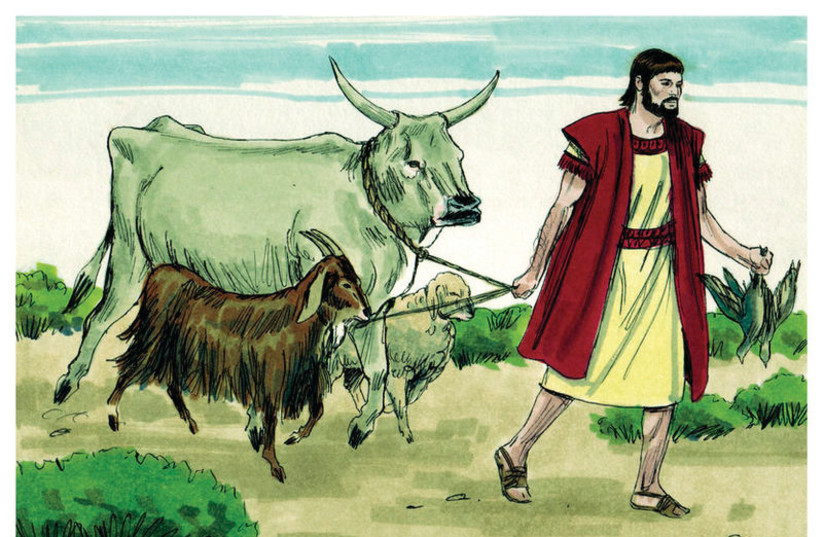This week’s parsha, Vayera, begins with HaShem speaking to Abraham, when suddenly three angels, disguised as men, arrive at Abraham’s tent. Quickly, Abraham leaves God to tend to his new visitors. The guests are treated as kings, and from this we learn why to this day gracious hosts are told they are “like Avraham Avinu” (Abraham our father).
To be like Abraham
It gets lost in the events that immediately proceed the angels’ arrival as to the urgency to which Abraham felt obligated to tend to his guests; he left a conversation with God. Think about that for a second — to Abraham, it was more important to make sure that his guests, individuals he had not previously known, were tended to more than anything else, even a direct dialogue with God. Not only that, he gives his guests the best of his everything — from food to drink. This is something really special.
We see also how not being gracious can lead to destruction. Later in the parsha, God destroys Sodom and Gomorrah because of the way they treat the same angels, wishing harm upon them rather than kindness. Negatively breeds negatively, positivity will reap the same. This, too, we can apply to all aspects of our lives.
We see too that Abraham makes it a point to involve everyone in his household in the acts of tending to his guests, something that God later remarks as a unique attribute of Abraham. When I think about being a guest in someone’s home, nothing makes me feel happier than to be treated like you are one and the same. Being offered food, drink, and comfort, especially from someone you may barely know, leaves a warm feeling. This is something that as a people we are fortunate to have deeply embedded in our psyche.

Immediately Chabad comes to mind. The international organization welcomes Jews from around the world into their homes on a daily basis with no pride or prejudice, just open arms. It does not matter what you look like, your level of observance, your politics — nothing — only sharing in our common tradition enables you to feel warmth in any corner of the Earth.
I likewise feel blessed to have been bred into this tradition as well, growing up in a home where hosting friends and family was a common occurrence, and being taught that making them feel comfortable is of utmost importance. This meant cleaning the house, tidying up spaces, having food and drink at the ready, attending to needs, and engaging in fruitful conversation throughout. Often it is not easy, you could be tired from a long week of work or in a generally bad mood — in many cases, you may be completely uninterested because you have never met the person — nevertheless creating a space where everyone feels welcome opens up doors for you the world over. Now living alone, I revel in any opportunity I have to welcome in friends or family to my home.
I feel this way too living now in Israel, among multitudes who embody the values of Abraham and truly act “like Avraham Avinu.” People whom you have never met opening their doors on Friday nights for Shabbat dinners, offering a hand in a job search, or just being there to give a helping hand. Ever more so if you are acquainted. It is a remarkable feature about our people and our tradition, and beautifully we find its root in this week’s parsha.
May we always merit to open our doors to those far and near — family and friends, strangers and angels — and to embody the tradition we have been passed down to be “like Avraham Avinu” in all our ways and actions.
Shabbat Shalom.
The writer, a Jerusalem Post staff member, is an entrepreneur and Hebrew thinker, known as Osher in Hebrew. A recent Oleh, he also helps oversee the start-up ecosystem in Jerusalem with Made in JLM. On Twitter: @troyfritzhand.
